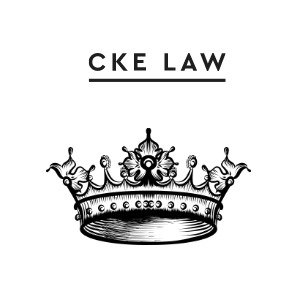Best Inheritance Law Lawyers in Manchester
Share your needs with us, get contacted by law firms.
Free. Takes 2 min.
List of the best lawyers in Manchester, United Kingdom
1. About Inheritance Law in Manchester, United Kingdom
Inheritance law in Manchester follows the laws of England and Wales. It covers how a person’s estate is distributed after death, whether there is a valid will or not. The local practice is largely the same as across the region, with probate and estate administration handled by courts and registries in Manchester when needed. A solicitor or conveyancing solicitor often coordinates this work alongside a probate practitioner to ensure accurate asset transfer and tax compliance.
Key concepts include the validity of wills, intestacy rules, executor duties, and claims under the Inheritance Act 1975. Understanding these basics helps residents in Manchester determine whether they need legal guidance. Working with a solicitor or licensed legal adviser can prevent delays and reduce the risk of disputes among beneficiaries.
For practical guidance, you can consult official sources that outline the probate process and the rules governing wills and estates in England and Wales. See GOV.UK for probate applications and Legislation.gov.uk for statutory texts.
Probate procedures depend on the complexity of the estate and any disputes or claims that arise.GOV.UK - Apply for probate and Wills Act 1837 provide foundational guidance and official texts.
2. Why You May Need a Lawyer
-
A relative in Manchester dies with a will that beneficiaries dispute. You suspect undue influence or lack of capacity and need a solicitor to assess validity and advise on contest options. A lawyer can help prepare court submissions if a challenge proceeds.
Working with a Manchester solicitor reduces the risk of procedural errors in filing for probate or challenging a will. They can coordinate evidence from medical records, witness statements and financial records to support a claim.
-
The estate includes properties in multiple Greater Manchester locations and overseas assets. A probate specialist can identify where to file and how to value foreign assets. This helps ensure proper administration and tax reporting.
Legal counsel can also manage cross-border issues, including potential foreign probate requirements and asset repatriation strategies for beneficiaries in Manchester.
-
You suspect executor mismanagement or conflicts among co-executors. A solicitor can seek removal, oversee accounting, and protect beneficiaries’ interests. They can also guide you through judicial step-by-step action if needed.
Given the fiduciary duties involved, professional oversight minimizes risk of misappropriation and ensures timely distribution of assets under court supervision if required.
-
A dependent person in Manchester believes they were inadequately provided for under a will or intestacy. The Inheritance Act 1975 allows dependants to seek reasonable provision. A lawyer can evaluate eligibility and present a claim with supporting evidence.
Legal counsel helps quantify needs and present a persuasive case to the court, improving chances of a favorable outcome for dependants in complex family situations.
-
You want to minimise inheritance tax or manage estate taxes for a high-value Manchester estate. A solicitor can offer planning strategies before death and ensure proper use of exemptions and reliefs.
Professional advice can help document accurate valuations and structure distributions to comply with tax rules and avoid penalties later.
3. Local Laws Overview
The Manchester context operates under national law applicable to England and Wales. The following statutes form the backbone of modern Inheritance Law and are routinely applied in Manchester probate and dispute cases.
Wills Act 1837
The Wills Act 1837 sets out the essential formalities for executing a valid will. It requires witnesses and the testator's capacity at the time of signing. This Act underpins most will validity challenges in Manchester and nationwide. The Act remains foundational despite many subsequent amendments.
Administration of Estates Act 1925
This Act governs the process of administering an estate after death, including the transfer of assets and the distribution of property to beneficiaries. It provides the framework for letters of administration and probate, which are central to estate administration in Manchester. The legislation continues to be updated to reflect modern practice.
Inheritance Act 1975
The Inheritance Act 1975 enables dependants and certain relatives to claim reasonable provision from an estate. It is frequently invoked in Manchester cases where spouses, children, or cohabitants seek provision beyond what a will or intestacy would otherwise provide. The Act has been interpreted and refined by case law over the decades.
Recent changes to intestacy and dependent claims were introduced by the Inheritance and Trustees' Powers Act 2014, which updated several provisions to reflect evolving family structures. For statutory text and updates, see Inheritance and Trustees' Powers Act 2014 and Wills Act 1837.
For practical guidance on probate processes, see GOV.UK and the official legislation sources cited above.
The statutory framework provides a roadmap for executors, beneficiaries, and dependants navigating probate and disputes.GOV.UK - Apply for probate and Inheritance and Trustees' Powers Act 2014.
4. Frequently Asked Questions
What is probate and why is it needed in Manchester?
Probate verifies the validity of a will and authorises the executor to administer the estate. It ensures assets are distributed to the correct beneficiaries. Without probate, assets may remain locked and creditors cannot be paid.
How do I apply for a grant of probate in Manchester?
Begin online at GOV.UK to apply for probate. You will provide details of the deceased, the will, and estate assets. The process involves forms, the death certificate, and likely an executor's oath.
What is intestacy and who inherits if there is no will in England and Wales?
Intestacy rules determine who inherits if there is no valid will. Spouses and civil partners usually receive a significant share, but children, parents and other relatives can be entitled in defined proportions. Complex estates may require court guidance.
How much does probate cost in the UK in 2025?
Probate costs include a government fee and solicitor charges if you hire counsel. Government fees have been updated in recent years, and the total depends on estate value and complexity. Always request a clear fee quote from your solicitor.
How long does probate typically take in Manchester?
Timescales depend on the estate’s complexity and any disputes. Simple, uncontested estates may complete in a few months; complex cases or those with foreign assets can take longer. A solicitor can provide a realistic forecast based on the case.
Do I need a solicitor to apply for probate in Manchester?
No, you can apply yourself, but professional help reduces errors and speeds up the process. A solicitor or probate specialist can handle forms, valuations, and potential disputes more efficiently.
Can a will be challenged after death in Manchester?
Yes, a will can be challenged on grounds such as lack of capacity, undue influence, or improper execution. Court proceedings can be costly and lengthy, so early legal advice is crucial.
Should I appoint an executor or multiple executors in a will?
Appointing one executor simplifies administration, but multiple executors can offer checks and shared responsibilities. If you choose more than one, you should appoint reserve executors and specify appointment conditions.
Do I need to pay inheritance tax on an estate in Manchester?
Inheritance Tax applies to certain estates above threshold values. The rate and availability of reliefs depend on the assets and residencies involved. Consult a solicitor and HMRC guidance to assess liabilities accurately.
Is it possible to contest a will for lack of capacity in Manchester?
Yes, you can challenge capacity if medical evidence or witnesses support concerns about the testator's ability to understand the will. It requires legal representation and typically evidence gathering.
How do I remove an executor who is mismanaging an estate in Manchester?
Removal usually involves a court application supported by evidence of mismanagement or conflict of interest. A solicitor can prepare and file the necessary applications and advise on interim remedies.
What documents are required to start probate in Manchester?
You typically need the death certificate, the will, the executor's details, asset valuations, and liability estimates. Additional documents may include property deeds and bank statements for asset verification.
5. Additional Resources
-
GOV.UK - Apply for probate and related guidance. Official government information on probate applications, fees, and steps. https://www.gov.uk/apply-probate
-
Legislation.gov.uk - Official texts of statutes such as the Wills Act 1837 and the Inheritance and Trustees' Powers Act 2014. https://www.legislation.gov.uk
-
The Law Society - Find a solicitor with a specialization in wills and probate to source qualified legal counsel in Manchester. https://www.lawsociety.org.uk/
6. Next Steps
-
Define your issue and urgency: determine whether there is a will, potential disputes, or intestacy. Note any imminent deadlines such as probate filing dates. Timeline: 1-3 days to map the case.
-
Gather key documents: death certificate, last will, asset records, debts, and contact details for executors. Timeline: 1-2 weeks to assemble a complete file.
-
Search for Manchester-based probate specialists: ask for referrals from the Law Society, check qualifications, and review client feedback. Timeline: 1-3 weeks to compile a shortlist.
-
Book initial consultations: prepare a case summary and questions about fees, scope, and timescales. Timeline: 1-2 weeks to schedule and attend meetings.
-
Compare proposals and fee structures: prefer transparent fixed fees for defined services when possible. Timeline: 1-2 weeks to evaluate and decide.
-
Engage a solicitor or probate lawyer: sign a terms of business and provide supporting documents. Timeline: 1-2 weeks for engagement finalisation after choosing counsel.
-
Agree on a plan and milestones: set expected probate timelines, reporting cadence, and next steps. Timeline: immediate to 1 week after engagement.
Lawzana helps you find the best lawyers and law firms in Manchester through a curated and pre-screened list of qualified legal professionals. Our platform offers rankings and detailed profiles of attorneys and law firms, allowing you to compare based on practice areas, including Inheritance Law, experience, and client feedback.
Each profile includes a description of the firm's areas of practice, client reviews, team members and partners, year of establishment, spoken languages, office locations, contact information, social media presence, and any published articles or resources. Most firms on our platform speak English and are experienced in both local and international legal matters.
Get a quote from top-rated law firms in Manchester, United Kingdom — quickly, securely, and without unnecessary hassle.
Disclaimer:
The information provided on this page is for general informational purposes only and does not constitute legal advice. While we strive to ensure the accuracy and relevance of the content, legal information may change over time, and interpretations of the law can vary. You should always consult with a qualified legal professional for advice specific to your situation.
We disclaim all liability for actions taken or not taken based on the content of this page. If you believe any information is incorrect or outdated, please contact us, and we will review and update it where appropriate.









